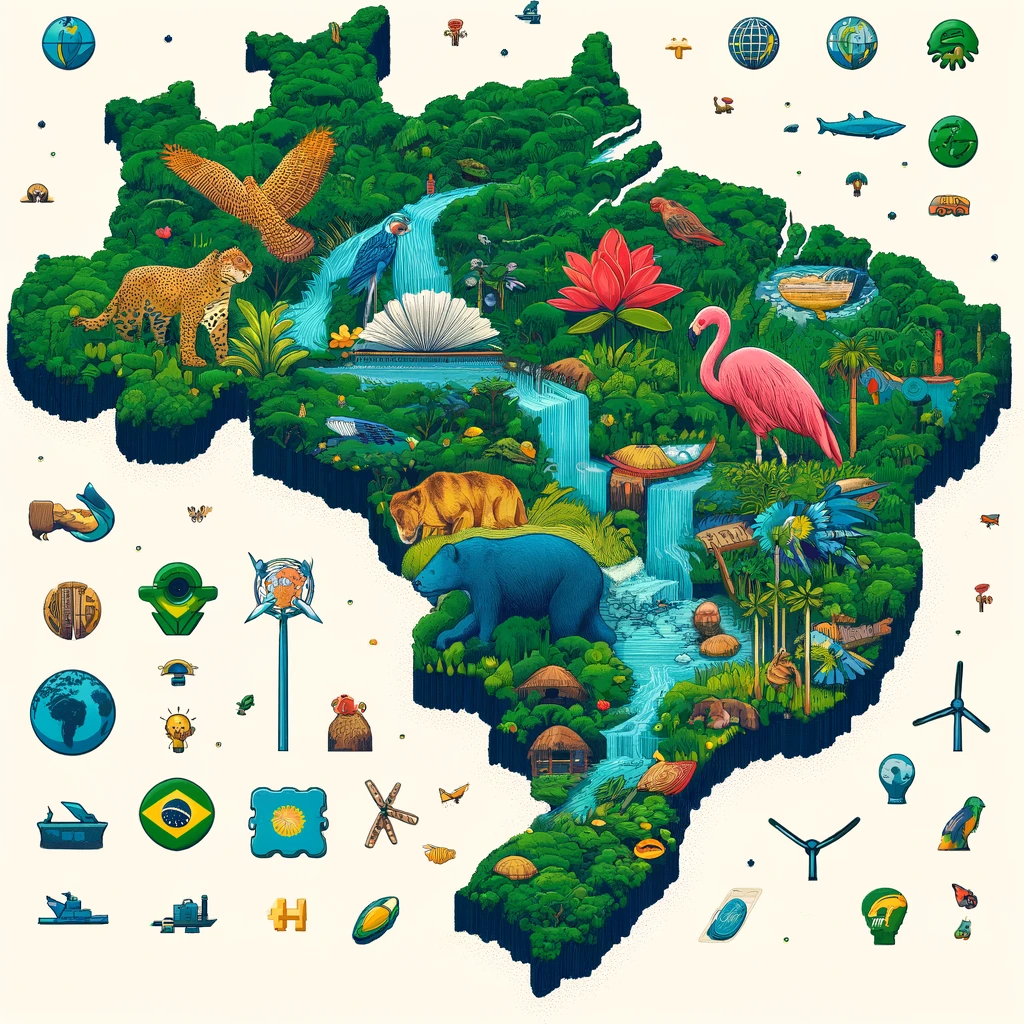
Brazil, with its vast biodiversity and natural resources, plays a crucial role in the global green agenda. As the country that is home to most of the Amazon, considered the “lung of the world”, Brazil has a significant responsibility in mitigating climate change and conserving biodiversity. The potentials and challenges faced by the country in this agenda are vast and complex.
Brazil's main potential in the green agenda lies in its natural wealth. The Amazon, that charges approximately 60% of Brazilian territory, is fundamental for global climate regulation, as it absorbs enormous amounts of carbon dioxide. Besides that, the country is one of the largest biofuel producers in the world, standing out in the production of ethanol from sugar cane. This renewable resource has the potential to significantly reduce greenhouse gas emissions when compared to fossil fuels.
Another strong point of Brazil is the predominantly renewable energy matrix. Near 83% of the electricity generated in the country comes from renewable sources, like hydroelectric plants, wind farms and solar plants. This infrastructure puts Brazil in an advantageous position to lead the global energy transition, promoting sustainable practices and clean technologies.
However, the challenges are numerous and complex. Deforestation in the Amazon is one of the most urgent issues. Despite conservation policies, the area continues to suffer from illegal logging, burning and conversion of forest to pasture and agriculture. According to the National Institute for Space Research (COMMIT), deforestation in the Amazon reached an alarming peak in 2020, with a loss of more than 11 thousand square kilometers of forest . This destruction not only releases large amounts of CO2, but also threatens biodiversity and indigenous communities that depend on the forest.
Besides that, economic development often conflicts with environmental goals. Infrastructure projects, such as roads and dams, are essential for economic growth, but can cause significant environmental impacts. The sustainable management of these projects is essential to balance economic development and environmental conservation. Robust public policies and effective enforcement are necessary to ensure that economic progress does not compromise the country's natural resources.
International pressure also plays an important role. Brazil is often the target of criticism from countries and non-governmental organizations (NGOs) due to its environmental policies and management of the Amazon. This pressure can be a driving force for implementing greener policies, but it can also generate diplomatic tensions. A recent example is the pressure for Brazil to reduce its deforestation rates and adopt more sustainable agricultural practices., as part of international commitments such as the Paris Agreement.
Brazilian civil society has shown increasing engagement in the green agenda. Environmentalist movements, NGOs and community initiatives are on the front lines of conservation and promoting sustainability. Environmental education and public awareness are essential to mobilize the population in favor of a more robust green agenda.
On the other hand, private sector participation is vital. Companies are increasingly aware of their environmental responsibilities and are adopting sustainable practices in their operations. Investment in green technology and adherence to ESG principles (environmental, social and governance) are becoming increasingly common in the Brazilian business scene.
Brazil plays a vital role in the global green agenda due to its biodiversity, renewable energy production capacity and unique natural resources. However, faces significant challenges, such as deforestation and the need to balance economic development and environmental conservation. With effective public policies, international pressure, civil society engagement and private sector participation, Brazil can lead the transition to a more sustainable future, contributing significantly to the mitigation of climate change and the conservation of global biodiversity.
